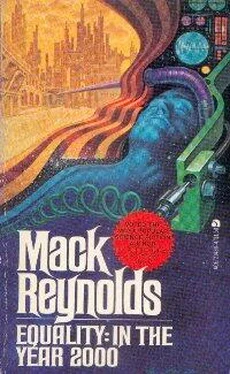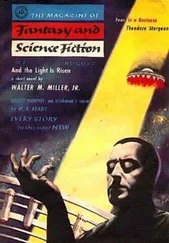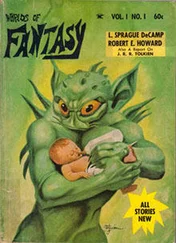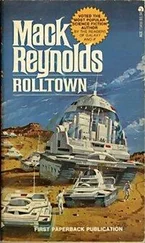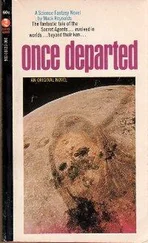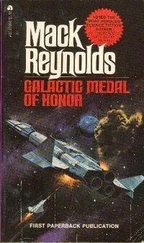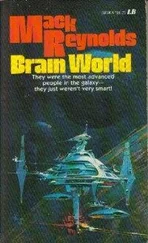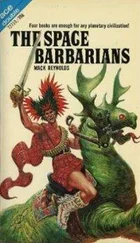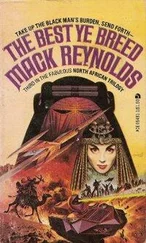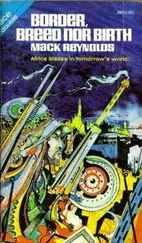Mack Reynolds - Equality - In the Year 2000
Здесь есть возможность читать онлайн «Mack Reynolds - Equality - In the Year 2000» весь текст электронной книги совершенно бесплатно (целиком полную версию без сокращений). В некоторых случаях можно слушать аудио, скачать через торрент в формате fb2 и присутствует краткое содержание. Год выпуска: 1977, ISBN: 1977, Издательство: Ace Books, Жанр: Фантастика и фэнтези, на английском языке. Описание произведения, (предисловие) а так же отзывы посетителей доступны на портале библиотеки ЛибКат.
- Название:Equality: In the Year 2000
- Автор:
- Издательство:Ace Books
- Жанр:
- Год:1977
- ISBN:0-441-21430-4
- Рейтинг книги:3 / 5. Голосов: 1
-
Избранное:Добавить в избранное
- Отзывы:
-
Ваша оценка:
- 60
- 1
- 2
- 3
- 4
- 5
Equality: In the Year 2000: краткое содержание, описание и аннотация
Предлагаем к чтению аннотацию, описание, краткое содержание или предисловие (зависит от того, что написал сам автор книги «Equality: In the Year 2000»). Если вы не нашли необходимую информацию о книге — напишите в комментариях, мы постараемся отыскать её.
Equality: In the Year 2000 — читать онлайн бесплатно полную книгу (весь текст) целиком
Ниже представлен текст книги, разбитый по страницам. Система сохранения места последней прочитанной страницы, позволяет с удобством читать онлайн бесплатно книгу «Equality: In the Year 2000», без необходимости каждый раз заново искать на чём Вы остановились. Поставьте закладку, и сможете в любой момент перейти на страницу, на которой закончили чтение.
Интервал:
Закладка:
The doctor seemed amused. “We don’t produce more than you used to. We produce less , I’m sure.”
Julian looked at him as though he were joking. “That’s ridiculous. Everyone lives on a scale that only the wealthy could afford in 1970.”
Leete chuckled, then gestured that they should take seats. “It’s not how much you produce but what you produce and how you distribute it. You measured your product in 1970 in dollars. Just how great was your yearly production?”
“Gross National Product was approximately a trillion dollars.”
The doctor thought about that. “In actuality, that takes a bit of qualification. The method of calculating that Gross National Product had its weak points.”
“How do you mean? It was simply the combined products and services of the whole population.”
The doctor pursed his lips. “Well, let’s take one example. The United States had long been proud of its per capita production as compared to that of other advanced countries, say, Sweden, or the Soviet Union. Let us say we have an American surgeon who makes twenty-five thousand dollars a year. That amount is added to the supposed total of the Gross National Product. In Sweden, his equal is paid but ten thousand dollars a year, since medicine is socialized there. Thus, in calculating Sweden’s Gross National Product, the doctor’s contribution is but ten thousand dollars. Over in Leningrad, a Soviet surgeon, the exact equal in ability to his American and Swedish colleagues, is paid but five thousand dollars a year, working for the state. In calculating Russian GNP, that sum is part of the total.
“And that isn’t the end. The following year, the American decides to get on the gravy train, as the expression goes, and moves to New York where he doubles his fees and makes fifty thousand dollars a year. So he now contributes ten times as much to the GNP as does his Soviet equal.”
Julian had to laugh.
“Nor is that all,” the doctor went on. “Let us leave services and take definite products. The Japanese of your time were turning out compact automobiles that were built to last. Some of them utilized the Wankel rotary engine, which gave good mileage and emitted very little in the way of pollution. American cars selling for the same amount, on the contrary, were built with planned obsolescence in mind. Detroit wanted the customer to desire a new car approximately every three years. Suppose that each of these cars cost three thousand dollars. The Japanese car gave double or more the mileage and lasted at least twice as long. Is it, then, accurate to add to the GNP of both the United States and Japan the amount of three thousand dollars?”
“I see what you mean,” Julian said. “GNP can be a somewhat elastic term. But what’s this got to do with your producing less than we used to? On the face of it—”
“Once again,” the doctor interrupted, “it’s a matter of what you produce and how you distribute it. For instance, we no longer produce weapons of destruction. What was your yearly bill for war, preparation for war, and paying off past wars?”
“I think it was pushing a hundred billion a year,” Julian said. “We even had widows on the pension lists who went back to the Civil War and the Indian Wars.”
“That took a considerable portion of the product of your trillion dollar economy. We have no military today. Also, in your day you had a top-heavy bureaucracy of some ten million persons, very few of whom produced anything worthwhile for the nation. Their labors were largely wasted.”
“You still have government workers.”
“Yes, but now they are part of the production process and are necessary. And most certainly they are fewer in number. But most important, your socioeconomic system was one of waste: your automobiles with power steering, power windows, air conditioning, engines which could drive them over one hundred twenty miles an hour but got only seven to ten miles to the gallon. The Japanese cars I mentioned before got up to thirty. And while it was possible to produce cars that could have lasted half a century, few American cars lasted ten years. Today, we build our cars to last as long as possible.
“But that’s only the beginning. In your grandfather’s day, when he bought a watch he expected it to last the rest of his life. Indeed, he often willed it to his son. By your time, they were turning out watches so poorly made that when one stopped, the owner simply threw it away and bought a new one. It. was cheaper than having it repaired, or even cleaned. Today, once again, we manufacture watches that will last as long as possible—when we use watches at all; usually we dial the time on our transceivers. I remember, when I was a boy, cigarette lighters that were meant to be thrown away when they had used up their fuel, rather than refilled. Many of the ballpoint pens were the same—non-refillable. And planned obsolescence didn’t apply only to cars. Kitchen appliances, light bulbs, tires, batteries, furniture—just about all products. You used throwaway bottles and so-called tin cans by the billions each year.”
“Wait a minute,” Julian said. “What do you do with tin cans today?”
“Actually, we use them very infrequently,” the other told him. “For instance, we prefer our food fresh. When we do use cans the metal is recycled. Mainly, we use plastic containers and the plastic too can be recycled.”
Julian said, “It seems to me that you can carry that recycling bit to an extreme. Suppose you go on a picnic way out in the boondocks somewhere and you take along a a dozen bottles or cans of beer. After you’re finished, do you have to carry them all the way back home to be thrown into the disposal chute and recycled?”
The doctor smiled. “Hardly. We have a special type of plastic for such use. In two or three days, exposure to either sun or rain will cause it to melt away into the ground. It is not harmful to soil.”
“Isn’t that waste?”
Leete nodded agreement. “Yes. But we are not fanatical. Also, it is not as though we were throwing away cans made of steel or aluminum. The plastic is made from wood and other things that grow and hence are replaceable.”
“You must use up a good many trees, if you manufacture as much plastic as all that.”
“There have been advances in forestry since your time, Julian. We now have trees that grow to maturity in one year. And, with nuclear fision and solar power, it is practical to desalinate ocean water and pump it into such areas as the Sahara and the Arabian and Gobi deserts. They are rapidly being reforestrated. We use wood and other agricultural products wherever we can, rather than metals and such irreplaceable natural resources. We husband such things for future generations. Such metals as we do utilize are recycled over and over again.”
The doctor paused. “Another example of waste in your time was your houses. In Europe today there are houses many hundreds of years old that are still lived in. Back at the time of the American Revolution, there were homes built that are still in existence. But in your day? A homeowner with a thirty-year mortgage could expect the house to have deteriorated before he finished paying for it. So bad was the workmanship and the materials that many had become hovels or shacks before ten years were up. Today, as in the long-ago past, we build houses that will last for centuries.”
“I suppose you’re right there,” Julian begrudged him. “We constructed millions of buildings each year and tore down almost an equal number—not just houses, but every other type of building as well.”
“Another great waste of your time,” Leete went one, “was power. You were going through your fossil fuels such as petroleum, coal, and natural gas as though there was an unlimited supply. For example, everyone who could afford it air-conditioned not only their homes, their offices, their stores and public buildings, but their cars as well.”
Читать дальшеИнтервал:
Закладка:
Похожие книги на «Equality: In the Year 2000»
Представляем Вашему вниманию похожие книги на «Equality: In the Year 2000» списком для выбора. Мы отобрали схожую по названию и смыслу литературу в надежде предоставить читателям больше вариантов отыскать новые, интересные, ещё непрочитанные произведения.
Обсуждение, отзывы о книге «Equality: In the Year 2000» и просто собственные мнения читателей. Оставьте ваши комментарии, напишите, что Вы думаете о произведении, его смысле или главных героях. Укажите что конкретно понравилось, а что нет, и почему Вы так считаете.
